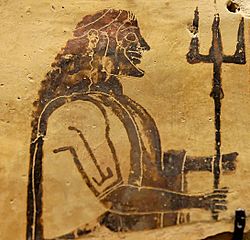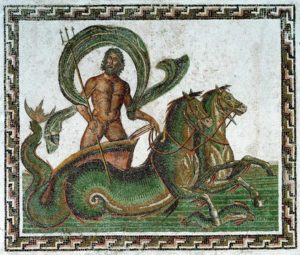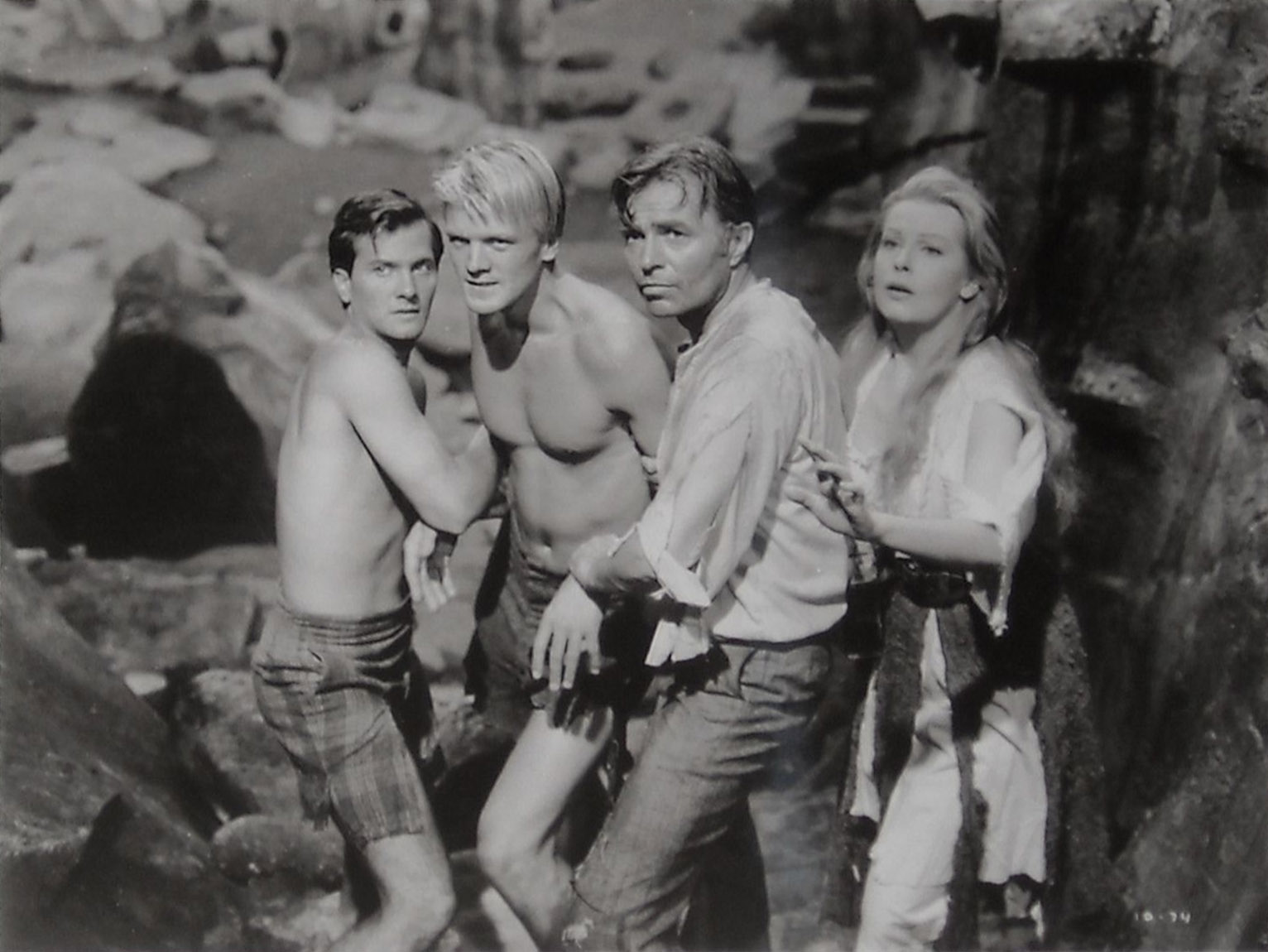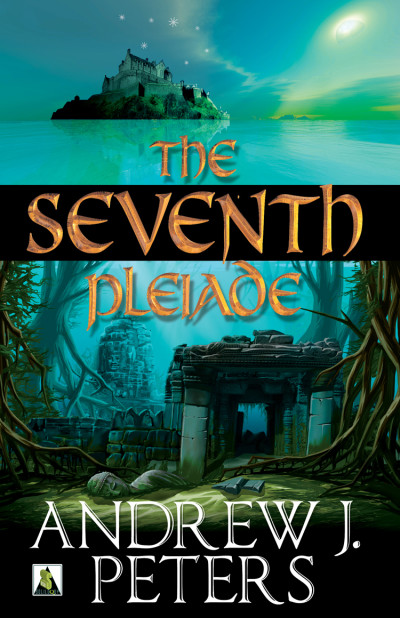Updated September 1st 9:00 PM: The #PoseidonWeek contest is closed, and the two winners, both from my Facebook page, selected by random.org are: Yendur Benny and Jutta Ervell! Thanks to everyone for stopping by. It was fun. 🙂
As my final post for #PoseidonWeek, I thought I’d share some perspectives on Poseidon in popular culture. Poseidon is most definitely one of the most enduring characters from classical mythology, and when you think about it, the fact that he’s been an archetype for over two millennia is pretty amazing.
Probably his popularity has to do with our fascination with the sea, which up until fairly recent times was easily imagined as an inscrutable force of nature: beautiful, seemingly infinite, and capable of menace and destruction, particularly for those who sought to use it for travel.

A Corinthian plaque of Poseidon, circa 550-525 BCE
Greek sailors believed that the sea was warded by the god, and they made sacrifices of horses and bulls before their voyages in order to beseech Poseidon for safe passage. As one of the twelve principal gods of the classical Greek pantheon, Poseidon played a big role in religion and daily life. He appears in Homer’s Illiad in which he provides some aid to the Achaeans (Greeks) in their siege of Troy. In Homer’s Odyssey, Poseidon is more of a villainous force, keeping the war hero Odysseus lost at sea when he seeks to return home from battle.
Here is one of Hesiod’s “Homeric Hymns” dedicated to Poseidon from a 1922 translation:
I begin to sing about Poseidon, the great god, mover of the earth and fruitless sea, god of the deep who is also lord of Helicon and wide Aegae. A twofold office the gods allotted you, O Shaker of the Earth, to be a tamer of horses and a saviour of ships!
Hail, Poseidon, Holder of the Earth, dark-haired lord! O blessed one, be kindly in heart and help those who voyage in ships!
Citation: Evelyn-White, Hugh G., trans. Hesiod, Homeric Hymns, Epic Cycle, Homerica. New York: G. P. Putnam’s Sons, 1922; Bartleby.com, 2010.
Of course, Poseidon lived on in the imagination of the Romans, though they changed his name to Neptune. The Romans didn’t take as reverential of a view of their gods, but they enjoyed their myths and legends as well as artwork inspired by myth. Many depictions of the god, who was associated both with the sea and with horses, survived the era in statuary and friezes. Like their Saturnalia and Bacchanalia traditions, the Romans held a yearly Neptunalia at midsummer, that perhaps was geared to ushering in rain to quench the dry Mediterranean season.

I found this beautiful 3rd century AD mosaic on Wikipedia Commons: Poseidon in a sea-horse drawn chariot. From the Sousse Archeological Museum in Tunisia.

Peter Paul Rubens’ “Union of Earth and Water” c. 1618
Moving ahead a century and change (sorry Middle Ages, once again you get short shrift), the Renaissance period in Europe saw a renewed interest in classical mythology, including the god of sea and storm, most often referenced as Neptune due to the dominating influence of Italian Roman sensibility. He was a frequent subject of decorative fountains, Bartolomeo Ammannati’s famous 16th century Fountain of Neptune in Florence, for example, as well as oil paintings. He was portrayed by Rubens, Bordone, Bronzini, Poussin, and many other artists. Neptune (or Poseidon) has been a steady motif in statues and fountains through modern times, and representations can be found in the gardens of Chateau Versaille, the Court of Neptune in Washington, DC, bronze sculpture at New York City’s Grand Army Plaza, and probably many hundreds of public parks and gardens around the world.
Neptune is one of the subjects of early twentieth century British composer Gustav Holst’s orchestral suite “The Planets.”
In American films, Poseidon has been portrayed by actors Kevin McKidd (Percy Jackson and the Olympians), Danny Huston (Clash of the Titans), and Kellan Lutz (Immortals).
Here’s a bit of a silly, instructional trailer with my favorite Kevin McKidd.
Meet Poseidon – Percy Jackson and the Lightning Thief
Kevin McKidd plays the Earthshaker and Lord of the Sea, Poseidon in the 2010 action movie Percy Jackson and the Lightning Thief. Also starring Logan Lerman, Brandon Jackson, Alexandra Daddario, Jake Abel, Pierce Brosnan and Uma Thurman
That’s a whirlwind tour, but I’m afraid it’s all I have time for today! Don’t forget: it’s the last day to enter the #PoseidonWeek contest. Interact with my site or my Facebook page and you could win Poseidon swag provided by Zazzle. Contest ends 9:00 PM EST Thursday, September 1st.




 There’s Rick Riordan’s Percy Jackson book series and movie franchise, the 2010 reboot of Clash of the Titans (from the original 1981 movie — see #5 above), along with films like 300 and Immortals.
There’s Rick Riordan’s Percy Jackson book series and movie franchise, the 2010 reboot of Clash of the Titans (from the original 1981 movie — see #5 above), along with films like 300 and Immortals.

